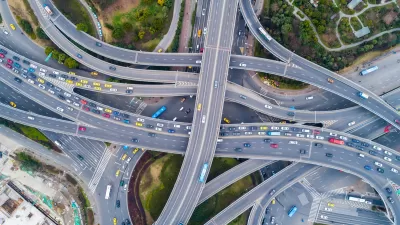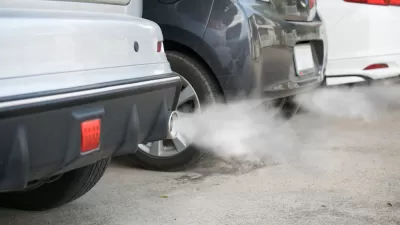Overcoming our carbon dependence should be seen as an opportunity to rethink for the better an institution largely shaped by and for fossil fuel: our cities.
With the dust settling on the Paris climate talks and the difficult process of international negotiation over, the even harder process of confronting climate change begins. Unsurprisingly, transitioning to a less carbon-dependent economy and society will require sacrifice, hard work, open dialogue, and strict accountability—not to mention overcoming tremendously powerful economic structures and political opposition. Yet, tackling climate change is not only about conjuring up herculean strength or unleashing torrents of technological innovation. Rather, overcoming our carbon dependence should be seen as an opportunity to rethink for the better an institution largely shaped by and for fossil fuel: our cities.
For the past 100 years, urban life has been indelibly shaped by the ample consumption of carbon. Our dependence on the automobile can be traced back in part to Eisenhower’s 1956 Federal Highway Act, in which the American government at all levels—city, state, and federal—transformed the American urban landscape into one entirely dominated by concrete. Decades later, it is no surprise that the vast majority of the CO2 emitted by cities is caused by automobile use.
FULL STORY: Confronting Climate Change, Rethinking the City

Planetizen Federal Action Tracker
A weekly monitor of how Trump’s orders and actions are impacting planners and planning in America.

Map: Where Senate Republicans Want to Sell Your Public Lands
For public land advocates, the Senate Republicans’ proposal to sell millions of acres of public land in the West is “the biggest fight of their careers.”

Restaurant Patios Were a Pandemic Win — Why Were They so Hard to Keep?
Social distancing requirements and changes in travel patterns prompted cities to pilot new uses for street and sidewalk space. Then it got complicated.

Albuquerque Route 66 Motels Become Affordable Housing
A $4 million city fund is incentivizing developers to breathe new life into derelict midcentury motels.

DC Area County Eliminates Bus Fares
Montgomery County joins a growing trend of making transit free.

Platform Pilsner: Vancouver Transit Agency Releases... a Beer?
TransLink will receive a portion of every sale of the four-pack.
Urban Design for Planners 1: Software Tools
This six-course series explores essential urban design concepts using open source software and equips planners with the tools they need to participate fully in the urban design process.
Planning for Universal Design
Learn the tools for implementing Universal Design in planning regulations.
Heyer Gruel & Associates PA
JM Goldson LLC
Custer County Colorado
City of Camden Redevelopment Agency
City of Astoria
Transportation Research & Education Center (TREC) at Portland State University
Camden Redevelopment Agency
City of Claremont
Municipality of Princeton (NJ)





























